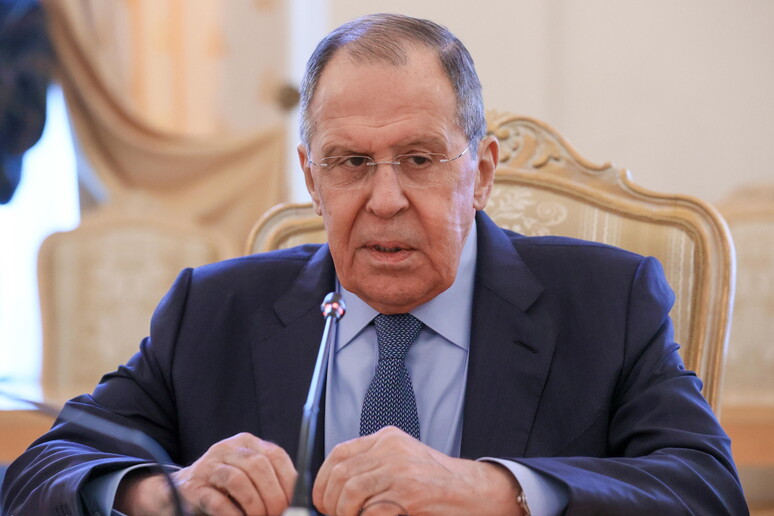Russian Foreign Minister Sergey Lavrov
has angered Israel by telling Italy's Mediaset television on
Sunday that the fact Ukraine President Volodymyr Zelensky is
Jewish does not mean he isn't a Nazi, saying Adolf Hitler
himself had Jewish roots.
Moscow has justified its invasion of Ukraine on the grounds that
its neighbour must be "denazified".
"Lies such as these mean to blame Jews for the horrible crimes
committed against them throughout history and by doing so,
remove responsibility from their enemies," said Israeli Prime
Minister Naftali Bennett.
On Monday the Israeli foreign ministry summoned the Russian
ambassador to Israel for a clarification on the comments.
"Foreign Minister Lavrov's remarks are both an unforgivable and
outrageous statement as well as a terrible historical error,"
said Israeli Foreign Minister Yair Lapid.
"Jews did not murder themselves in the Holocaust.
"The lowest level of racism against Jews is to accuse Jews
themselves of antisemitism."
Dani Dayan, the president of the Yad Vashem Holocaust
Remembrance Centre in Jerusalem, was furious too.
"The remarks of Russian FM Lavrov are absurd, dangerous and
deserve condemnation," Dayan said via Twitter.
"Lavrov is propagating the inversion of the Holocaust - turning
the victims into the criminals on the basis of promoting a
completely unfounded claim that Hitler was of Jewish descent.
"Equally serious is calling the Ukrainians in general, and
President Zelenskyy in particular, Nazis.
"This, among other things, is a complete distortion of history
and a serious affront to the victims of Nazism".
Ruth Dureghello, the president of Rome's Jewish community, said
Lavrov's comments were "nonsensical and dangerous" and said the
most alarming thing was that they went unchallenged by the
interviewer.
Adolfo Urso, the president of Copasir, the Italian parliament's
intelligence system oversight body, said an inquiry had been
launched that would involve hearings with broadcasters and
communications authority Agcom.
"Lavrov's intervention has confirmed our concerns because of the
way it took place and the mountain of fake news it piled up,"
Urso said.
The row exploded amid controversy about a series of appearances
on Italian TV by experts and journalists critical of Western
support for Kyiv and calling for a soft stance with Moscow.
Indeed, a European Commission spokesperson on Monday said that
Italian broadcasters must be careful after two Russian
journalists on the sanctions list were hosted on TV talk shows.
"Hosting Russian journalists from media organs blocked by
sanctions, such as Sputnik and Russia Today, must not
circumvent EU sanctions against Russian propaganda on Ukraine,"
the spokesperson said.
"It's not a question of censuring opinions, but it is important
that their backgrounds are contextualized.
"Furthermore, EU and member State broadcasters must not allow
incitement of violence and hatred in the programmes".
ALL RIGHTS RESERVED © Copyright ANSA











